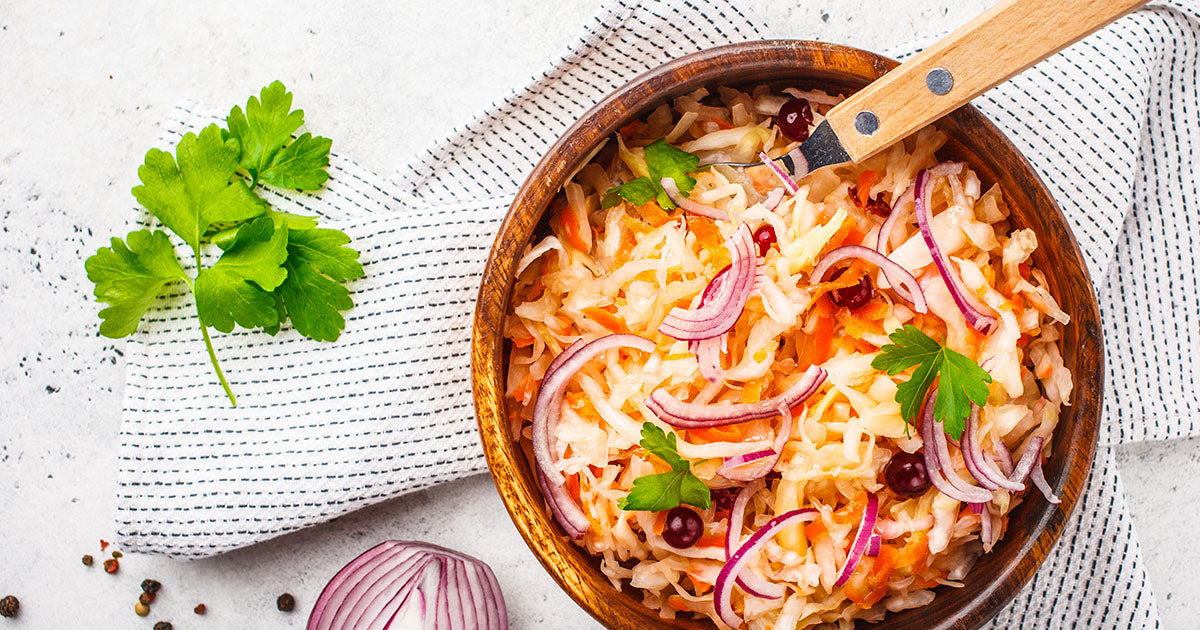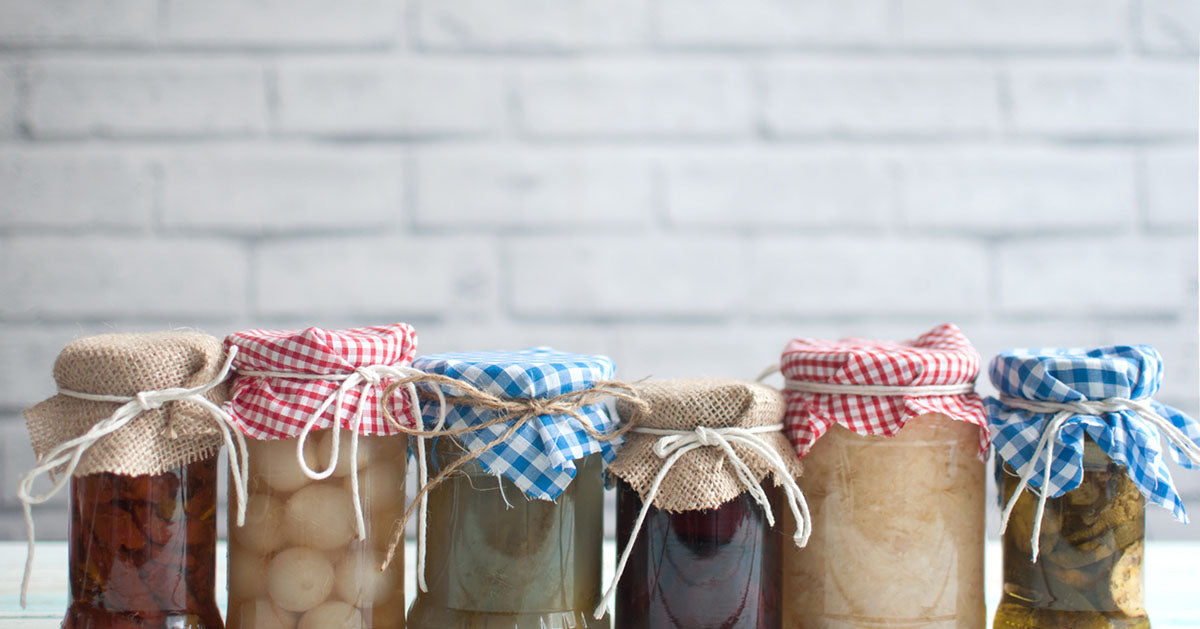7 probiotic-rich foods for daily digestive support*

Killeen McGowan | January 2019
To me, there’s nothing worse than looking forward to plans, only to arrive feeling too uncomfortable to enjoy the company, or the amazing food spread so typical in social gatherings. And even if the night starts out great, an overindulgence of appetizers, sweets, or that extra glass of wine can swiftly send my digestion out of whack. It’s a downer. Have you been there, too?
You are what you eat
I swear my stomach must’ve been made of steel in the college years. A decade or two later, I’m notably more sensitive, and I’ve noticed everyone around me is, too. So, when I discovered I could proactively set my gut up for success through the right food choices, I was excited, to say the least. Whether you’re an adventurous eater like I am, or prefer a more mild cuisine, there are several probiotic-rich foods (and beverages!) you can incorporate into your daily diet.
My top seven food choices to promote positive digestive health*
01. Yogurt

The classic choice. Most people are aware that yogurt can be a good source of probiotics. Less common knowledge is that all yogurt isn’t created equal. To get a dose of beneficial bacteria, you’re going to want an unsweetened yogurt containing live cultures like Lactobacilli and Bifidobacteria. I actually make my own yogurt in my instapot, and it tastes amazing. There are so many ways you can dress up your yogurt, too- like these savory bowls, inspired by Danny Seo, Naturally.
02. Kefir

I’d describe kefir as a thinner, tangier version of yogurt. Kefir grains are used to ferment milk, traditionally of the cow, sheep or goat variety, though soy and coconut options are readily available today- which I love. What makes kefir so special? Yogurt usually contains two strains of bacteria, but kefir can contain as many as 40. (1) That said, I’m inclined to stop the list here, but it’s an acquired taste, and not for everyone.
03. Sauerkraut

If yogurt is the most common probiotic food, I’m willing to bet fermented sauerkraut gets a second place ribbon. It’s not just for reubens or bratwurst, either; I have a lovely jar of locally made, red miso sauerkraut in my fridge right now, and I put it on everything. Like yogurt, you need to be selective about your brand of ‘kraut. Read the label to be sure it boasts live, active cultures.
04. Kimchi

Known as sauerkraut’s spicy cousin, kimchi is a staple in Korean cooking. Primarily cabbage, kimchi gets its flavor and color from chili powder. It’s like hot sauce, with texture. However, if you aren’t into the hot stuff, you can change it up by fermenting your own veggies, using whey and a mason jar, to customize your kimchi to the flavor profile of your liking.
05. Miso

If you’ve ever gone out for sushi, chances are you’ve been offered a bowl of miso soup, which is made from a paste of fermented soybeans. The key is to warm it gently, for heat is a probiotic enemy, and those live cultures you’re after will be destroyed by high temperatures. Miso isn’t just for soup, either- it can be stirred into anything as a salty, savory seasoning.
06. Tempeh

Funny enough, tempeh is also fermented soy. In this case, it’s been left whole, and pressed into a cake-like brick. When chopped or crumbled, it has a meaty texture that adds dimension to a salad, rice dish, or cold salad. I love it in stir frys, too, but this kills the probiotics, of course.
07. Kombucha

I’m rather new to kombucha, and I’m hooked. So are lots of people, apparently, as it’s now on tap in natural grocers and restaurants, even up here in rural New Hampshire. It’s a tangy, fizzy tea that relies on symbiotic culture of bacteria and yeast, or SCOBY, to ferment. While it does begin with a fair amount of sugar, the bacteria and yeast consume most of it, yielding a low-sugar, subtly sweet, probiotic-rich result. Kombucha can be purchased (or brewed) in seemingly limitless flavors. I’ve tried cayenne, blueberry, peach, ginger, apple cider, and rose lime… just to name a few.
Balance it out
I’d love to say I consume this entire list on a regular basis, but life happens. Not to mention, it’s just a bit tricky to measure my daily intake of all that good bacteria! A probiotic supplement is a convenient way to maintain a healthy flora balance,* and MegaFood has so many options to help you find the perfect probiotic for you.
Intrigued by the prospect of greater gut health? Explore it further.
(1)Front Microbiol. 2015; 6: 1177. Milk kefir: composition, microbial cultures, biological activities, and related products Maria R. Prado,1 Lina Marcela Blandón,1 Luciana P. S. Vandenberghe,1 Cristine Rodrigues,1 Guillermo R. Castro,2Vanete Thomaz-Soccol,1 and Carlos R. Soccol1,*


Leave a comment
This site is protected by hCaptcha and the hCaptcha Privacy Policy and Terms of Service apply.